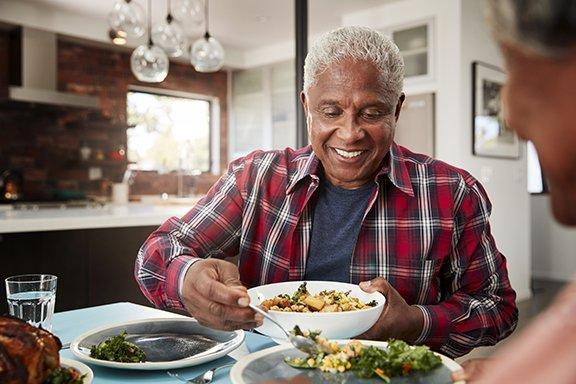Why Diet Matters When Suffering From Incontinence

Unfortunately, there is no “diet” to cure incontinence. On the other hand, what you are eating can have an important effect on the issues you may be facing. When suffering from incontinence, it is important to understand all the ways that you can help to manage your problems. Read on to learn more about how diet and incontinence are closely correlated and how you can change your diet to help with incontinence.
Common Bladder Irritants:
- Caffeine is present in many things that you may consume on a daily basis. Coffee beans, tea leaves, soda, over-the-counter medication, and some foods all contain caffeine. These can all result in urgency, frequency, and incontinence. Studies have shown that individuals who reduce their caffeine intake to less than 100mg per day have seen an improvement in their incontinence symptoms. Eliminating caffeine products can help manage incontinence, but be sure to slowly limit caffeine over several weeks to reduce headaches during the withdrawal.
- Alcohol has been shown to increase urgency, frequency, and incontinence. Alcohol triggers symptoms of urgency and acts as a diuretic, which is a substance that promotes diuresis, an increase in the production of urine. Try limiting your alcohol intake to help manage your incontinence.
- Artificial sweeteners have been shown to negatively affect your bladder function. These can include sodium saccharine, acesulfame K, and aspartame. Be sure to check the nutritional labels on any pre-packaged beverages you buy and avoid drinks with these artificial sweeteners in them.
The best beverage you can drink is water. If you need to, try adding a thin slice of lemon to add more flavor. Be careful with adding too much lemon, though, as a lot of citrus juice can irritate the bladder. Grape juice, cranberry juice, cherry juice, and apple juice typically do not irritate your bladder if you want to opt for something other than water.
Don’t Reduce Your Liquid Intake
It is also important to note that you shouldn’t reduce your liquid intake just because you think it will make you urinate less often. A smaller amount of urine may be highly concentrated which can irritate the bladder’s surface. Don’t be fearful of increasing your liquid intake. Instead, be sure to always stay hydrated and limit the bladder irritants that are listed above.
Limit Certain Foods
In addition to what liquids you are consuming, adjusting the food you eat can greatly improve incontinence. Spicy and acidic foods can make an overactive bladder worse. Along with artificial sweeteners, it could help to stay away from chocolate. The specific food triggers may vary from person to person. Try keeping a food diary to track how manageable your incontinence was each day when you ate certain foods.
There is no special “diet” for incontinence, but following these suggestions may help you better manage your bladder control. Slowly try making these changes in your diet and see how they can help you. Overtime, you may see notable changes!
